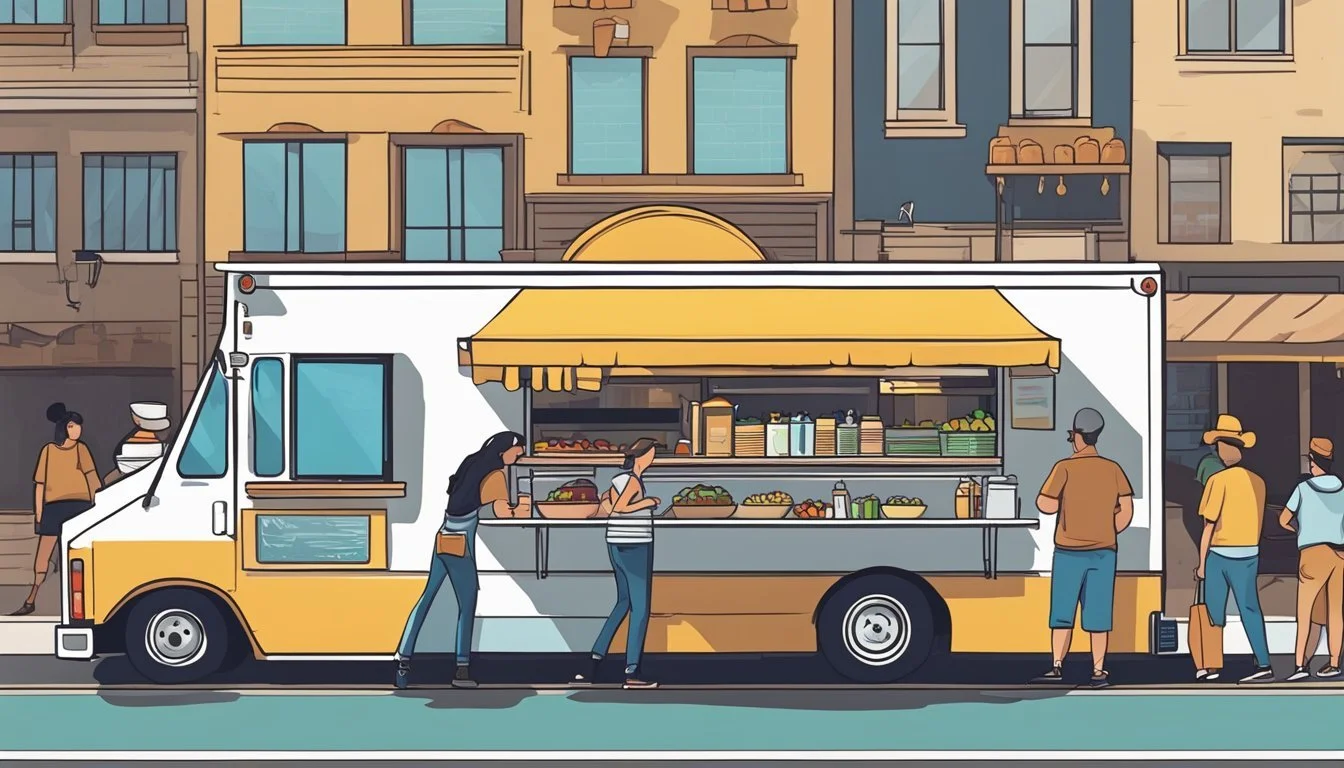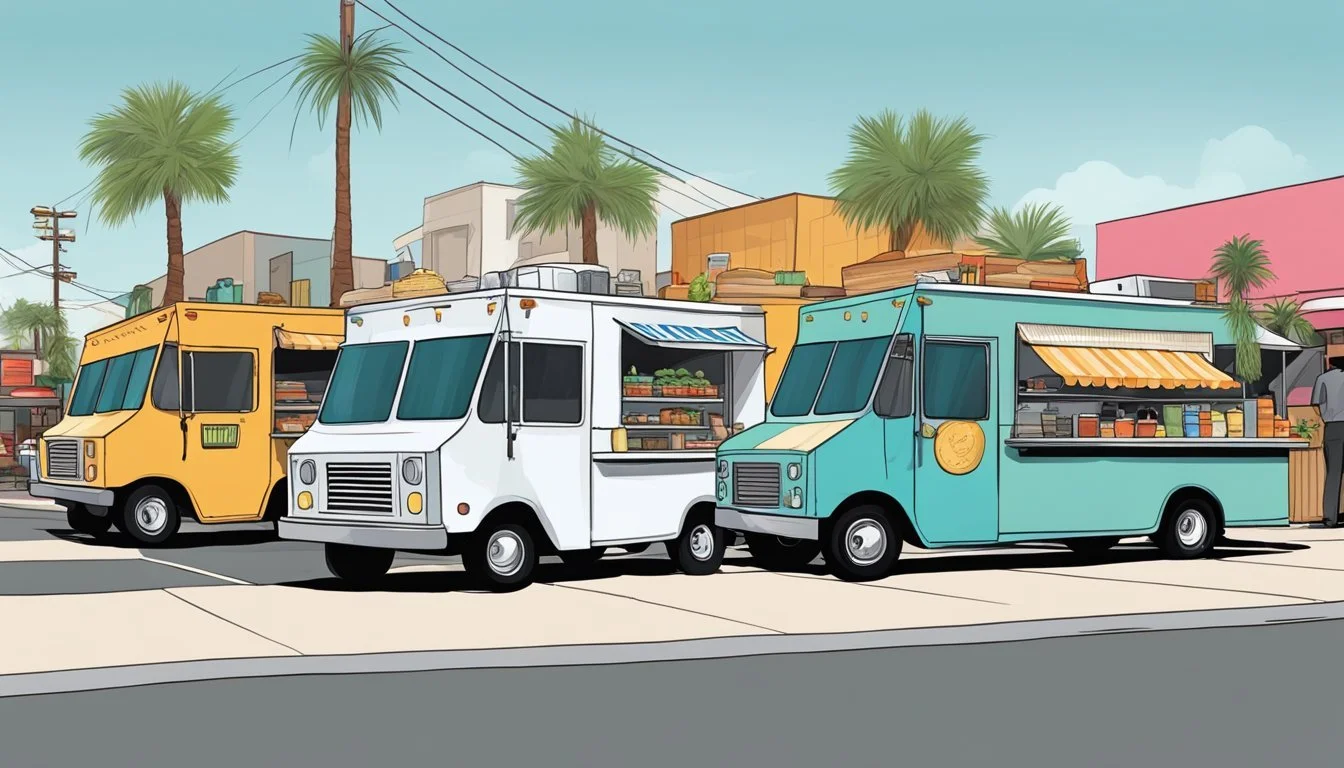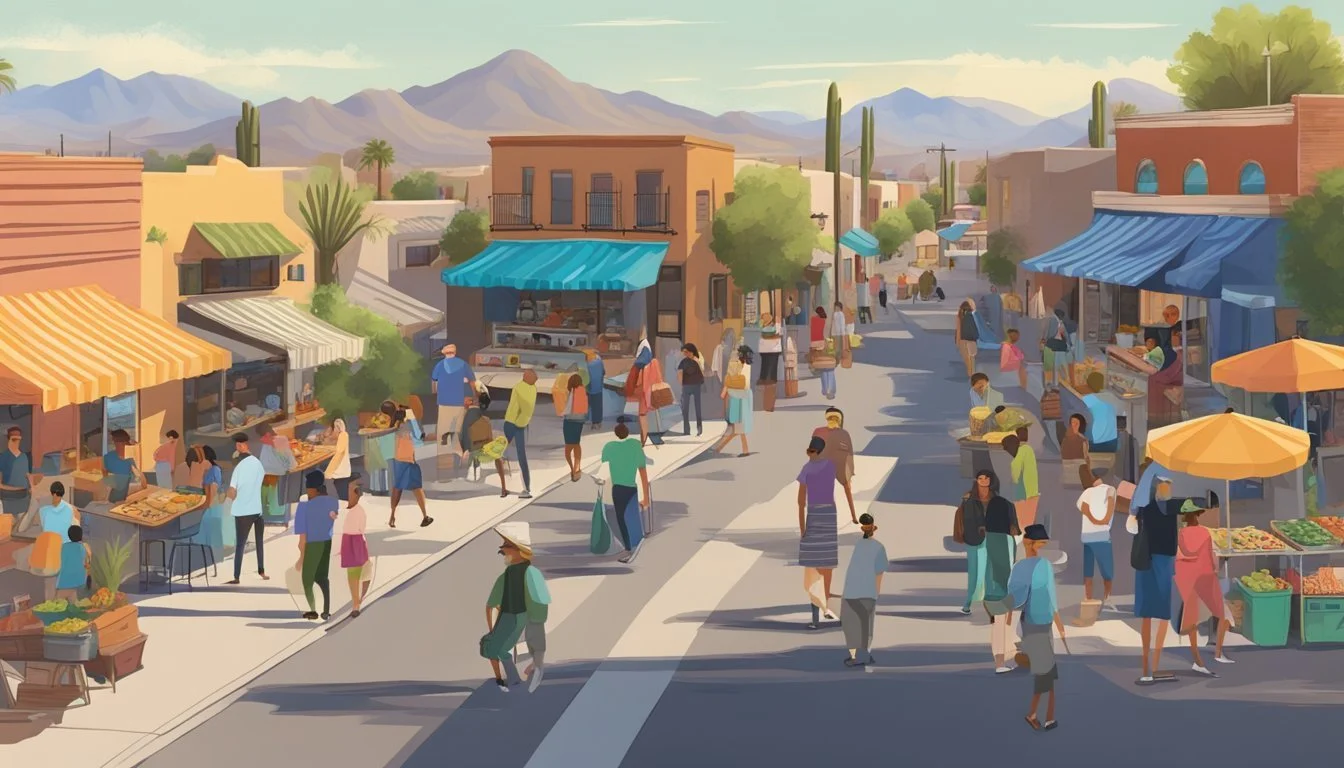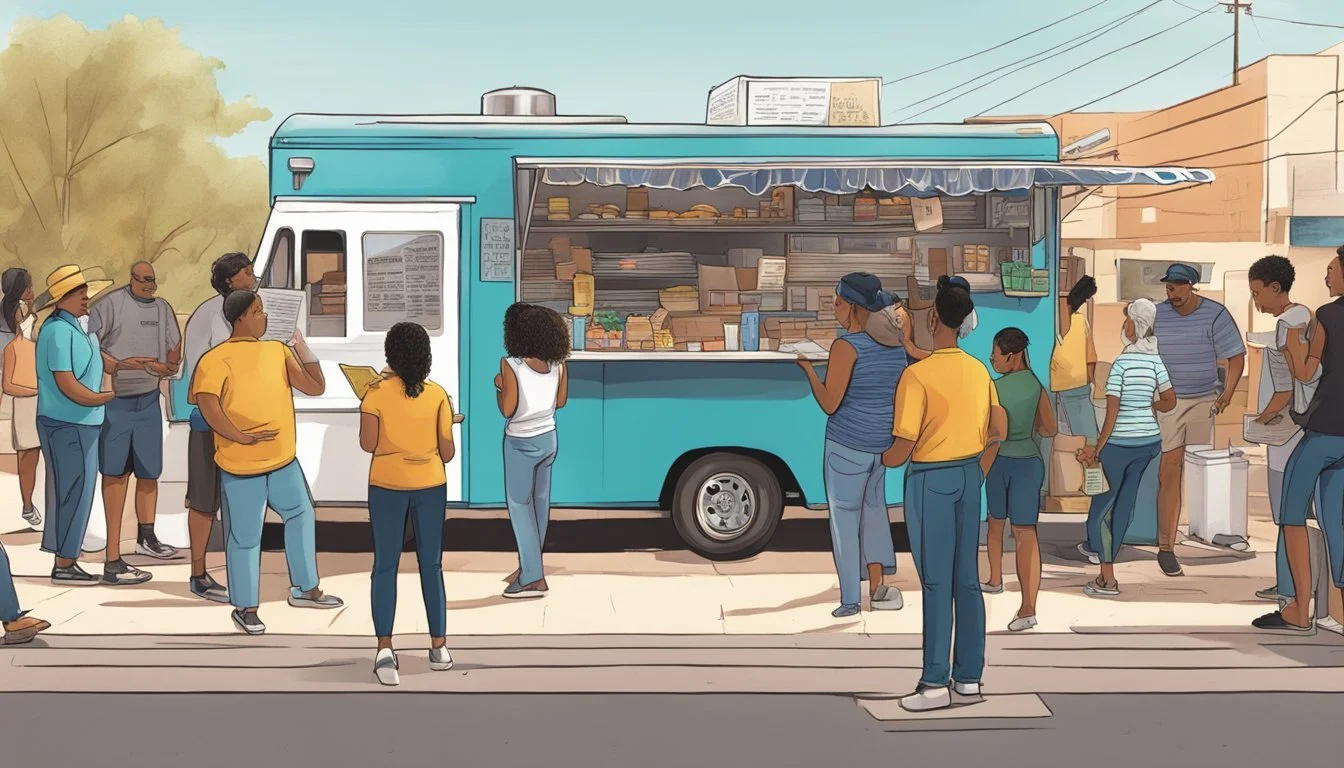Food Truck Laws Tucson, Arizona
Navigating Regulations for Mobile Vendors
Navigating food truck regulations in Tucson, Arizona, requires a careful understanding of both local and state laws. These regulations are designed to ensure that food trucks operate safely and within the health standards set by local health departments. Tucson, in line with the rest of Arizona, has established specific requirements that food truck operators must follow. These range from food safety measures to parking restrictions and licensing requirements.
Changes to these regulations can occur, reflecting the city's growing culinary scene and the recognition of food trucks as viable dining establishments. For instance, the recent updates now align Pima County's regulations with those long established in Maricopa County. A notable shift includes streamlined processes for obtaining necessary permits and adhering to public health protocols, making it easier for entrepreneurs to start and manage a food truck business.
Operators in Tucson must stay current with the Food Courts Unified Development Code (UDC) Amendment and other relevant regulations to ensure compliance. Failure to do so can result in legal repercussions and affect the trust of their customers. Understanding these laws is essential for food truck owners looking to successfully serve the community while adhering to the robust framework of health and safety standards.
Understanding Food Truck Regulations in Tucson
In Tucson, food truck operators must navigate a series of regulations and ordinances. These rules ensure that food trucks operate safely and in compliance with land use and health standards.
City Ordinance and Land Use Classification
The City of Tucson enforces specific ordinances that govern where food trucks can operate. These are defined by the land use classification which dictates the types of locations that are suitable for food truck operation. For instance, food trucks must adhere to zoning codes that classify the permissible areas for mobile food vending.
Unified Development Code (UDC)
The Unified Development Code (UDC) is a comprehensive set of regulations that includes zoning and development standards within Tucson. Food truck operators must review the UDC to understand how it impacts their business, particularly regarding the permissible operations in different zones and any special permitting that may be required.
Health and Safety Standards
Adherence to health and safety standards is mandatory for food truck operators in Tucson. They must follow state and local health standards to ensure the safety of the food they serve. This encompasses a variety of regulations, such as safe food handling practices, regular health inspections, and compliance with temperature control to prevent foodborne illnesses.
Obtaining Necessary Licenses and Permits
Starting a food truck business in Tucson, Arizona requires adhering to specific licensing and permit regulations to ensure compliance with city ordinances. Below, the requirements for acquiring a business license and the specifics for mobile food vendors are outlined to assist entrepreneurs in launching their food truck ventures.
Business License Requirements
In Tucson, obtaining a business license is a fundamental step. Entrepreneurs must apply through the City of Tucson's Business License Program, providing details such as the food truck's name, location, and description of services. The cost associated with this license varies, but it is mandatory for legal operations. Additionally, insurance policies are crucial; food truck owners must secure liability insurance to protect their business and comply with city guidelines.
Mobile Food Vendor Specifics
For mobile food vendors, Tucson's city ordinances stipulate additional requirements beyond the standard business license. A Mobile Food Unit License is essential, and it includes health and safety inspections to ensure the unit meets city ordinances related to food service. To obtain this license, vendors need to present their food truck for inspection and demonstrate adherence to public health regulations, such as proper temperature control measures and waste disposal. The specifics of these requirements can be found via the Pima County Health Department. It's necessary for food trucks to stay updated on any changes to regulations to maintain compliance.
Operational Guidelines for Tucson Food Trucks
The city of Tucson has specific requirements for food trucks, covering aspects from where they can park to the amenities they must provide. Understanding these regulations is crucial for any food truck operator in the area.
Parking and Location Restrictions
Food truck operators in Tucson should be aware of designated parking areas and location restrictions. It is essential that trucks park in zones that conform to city ordinances, which include dust-proof surfaces to mitigate environmental impact. Additionally, a predetermined number of parking spaces may be required, ensuring ample room for both operation and patron access.
Congregate Food Truck Courts Management
When it comes to congregate food truck courts, operators need to work within a framework that balances efficiency and community standards. The management of these courts involves coordination among multiple vendors and adherence to unified regulations. Food truck parks should facilitate a cohesive dining experience, with communal seating and amenities.
Infrastructure and Utility Access
Access to proper infrastructure and utilities is vital for food truck operations. This includes the requirement for electrical hookups or power pedestals to run kitchen equipment efficiently. It is also important for trucks to be equipped with or have access to a grease trap to maintain hygiene and prevent environmental contamination.
Outdoor Operations and Amenities
For outdoor operations, Tucson's guidelines call for suitable amenities to enhance customer experience. Food trucks should provide or be part of a setup that includes canopies, awnings, or other shaded structures to offer relief from the sun. Moreover, if the food truck court is stationary, it must ensure the availability of clean bathrooms for public use.
Community and Neighborhood Considerations
When assessing the integration of food truck courts into communities, the focus is on the harmony between the new culinary hubs and residential life, as well as ensuring proper on-site management to maintain the aesthetics and functionality of such spaces.
Impact on Residential Areas
The establishment of food truck courts adjacent to residentially zoned property presents a unique set of considerations. Residents express concerns about increased traffic, noise, and waste that could disrupt the tranquility of their neighborhoods. In places like The Pit, food truck courts are required to adhere to landscaping standards that serve as visual and auditory buffers, preserving the residential character while supporting local business vitality.
On-Site Management and Maintenance
Effective on-site management is critical in maintaining the orderly operation of food truck courts. These entities are responsible not only for day-to-day operations but also for overseeing the upkeep of infrastructure, such as restrooms and a centralized grease trap, ensuring they meet health and safety codes. Moreover, on an existing developed site, the use of space should account for environmental considerations like rainwater retention, which demonstrates a commitment to sustainable practices. Proper management plays a decisive role in the continuous success and neighborhood acceptance of food truck courts.
Engagement with Local Governance
In Tucson, Arizona, the development and amendment of food truck laws have been characterized by active participation between city officials and the community. The process involves a series of public hearings and recommendations by various commissions before the City Council makes a decision.
City Council and Public Hearings
The Tucson City Council, including Ward 2 Councilman Paul Cunningham, has played a pivotal role in incorporating community feedback into the legislative process. Public hearings are a critical component, ensuring that the voices of the residents are heard. Mayor Regina Romero and her team have demonstrated a commitment to stakeholder engagement through these hearings. In late 2023, after extensive public outreach, the City Council approved amendments relating to food truck courts, reflecting the collective input of the process.
Planning Commission and Development Services
The Planning Commission serves as an advisory body to the City Council, offering technical analysis and recommendations on proposed amendments. The commission, facilitated by Tucson's Planning and Development Services Department, held a public hearing on October 18, 2023, for the Food Truck Court Unified Development Code Amendment. During the meeting, the commission voted unanimously to forward a positive recommendation to the City Council, signifying the thorough review and support of the code amendment from both the commission and the Planning and Development Services Department.
Standards for Food Truck Design and Operation
In Tucson, Arizona, stringent designs and operational standards are established to ensure food trucks meet health, safety, and local governance criteria. These regulations are essential for food trucks looking to operate within the city.
Food Safety and Handling
Vehicle Requirements:
All mobile food units must be designed to prevent food contamination.
Surfaces must be easily cleanable and made from non-toxic materials.
Adequate facilities for handwashing and sanitization are required.
Food Safety Protocols:
Operators must adhere to stringent food safety ordinances, including proper temperature control mechanisms.
All food handlers must possess valid certification that reflects knowledge of safe food handling practices.
Minimum Standards and Specifications
Mechanical Considerations:
Mobile food units must use internal combustion generators that meet development and building code requirements to ensure safe operation.
Generators must be positioned to avoid fumes entering the food service or preparation areas.
Dimensions and Equipment:
Detailed specifications on the size and type of equipment used must comply with land use classification as well as local health department requirements.
A food truck is often considered a 'commercial kitchen' on wheels and must include proper restaurant-grade equipment.
Cultural and Event Aspects of Food Truck Activity
Food truck courts in Tucson have become vibrant hubs for community gatherings, offering an eclectic outdoor dining experience coupled with entertainment options.
Supporting Tucson's Food Truck Gatherings
Food truck gatherings in Tucson promote a unified establishment where micro-businesses and eateries thrive. Customers flock to these food courts to enjoy a diverse culinary landscape that mirrors the city's rich cultural tapestry. The Pit Tucson is an exemplar of such a unified establishment where retail sales and gastronomy coalesce, allowing patrons to explore a variety of dishes in a singular, dynamic environment.
Entertainment and Outdoor Experiences
In addition to serving as culinary hotspots, Tucson's food truck courts often double as venues for entertainment, featuring live or recorded music that enhances the outdoor dining ambiance. Outdoor experiences at places like Tucson food truck courts are not just about dining; they are lively venues that embrace the arts and provide a stage for local musicians, thereby amplifying the city's cultural scene.







